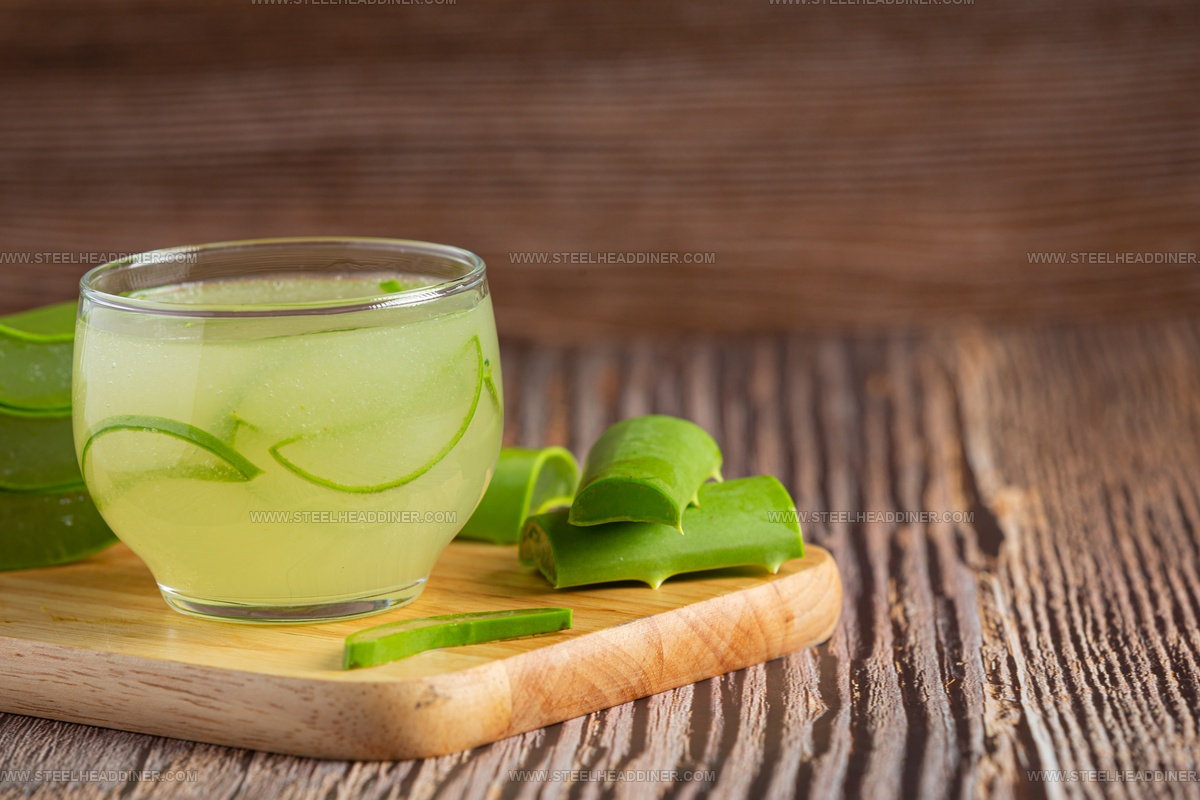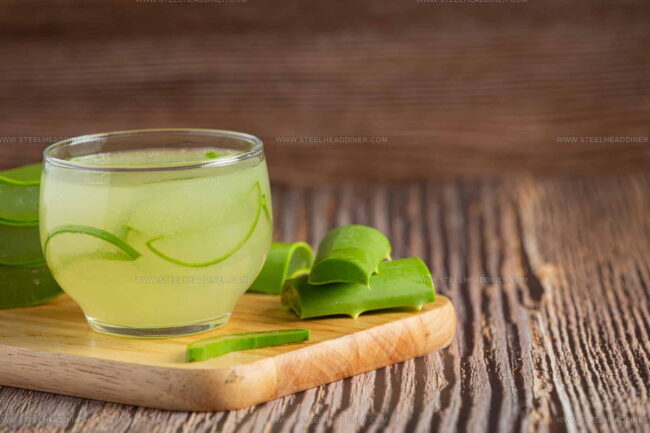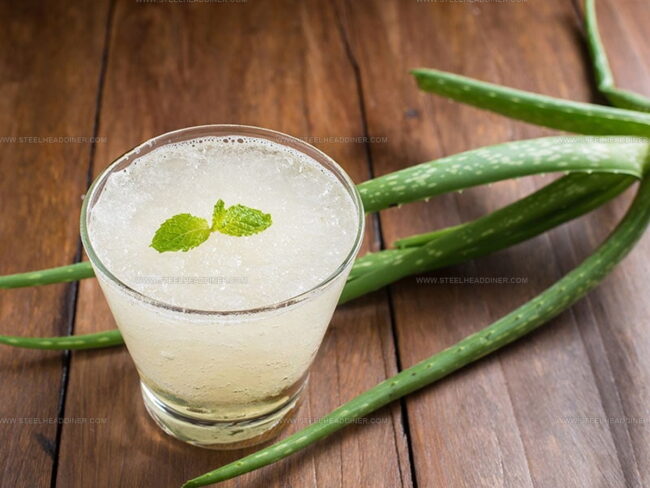What Does Aloe Vera Juice Taste Like? Uncover the Truth!
Aloe vera juice has sparked curiosity among health enthusiasts seeking natural wellness solutions.
Many people wonder about its flavor profile and drinking experience.
The vibrant green liquid comes packed with potential benefits that intrigue countless individuals.
Skeptical drinkers often approach this beverage with mixed expectations and questions about its palatability.
Some hesitate to try something unfamiliar, worried about potential unpleasant taste sensations.
Nutritionists and wellness experts frequently recommend understanding the nuanced characteristics before incorporating aloe vera juice into daily routines.
Your taste buds might be surprised by what awaits in this intriguing beverage.
Dive into the details and uncover the truth about aloe vera juice's unique sensory experience.
Aloe Vera Plant: Introduction
Green plants with healing powers have helped humans for centuries.
Medical experts know aloe vera works well for different health concerns.
Natural liquid from aloe leaves helps create soothing treatments for skin issues.
Smooth gel from this special plant goes into many skin care products like lotions and healing ointments.
Users can spread these items directly on skin to solve problems like cuts, burns, or dry patches.
Wellness seekers can also take aloe as capsules or liquid supplements to support overall health.
Doctors and natural medicine supporters agree this plant offers multiple benefits for healing and care.
Eating Aloe Vera: Is It Okay?
Unique plants like aloe vera can survive without soil, earning its nickname as immortal greenery.
Belonging to the Asphodelaceae plant group, this species shares space with roughly 400 other aloe varieties.
Medical experts have relied on aloe vera for countless generations, with scientific research linking it to multiple wellness benefits.
Health experts recognize aloe vera for multiple purposes such as healing skin damage from sun exposure, cleaning teeth by reducing plaque buildup, and potentially helping control blood sugar levels.
Packed with important nutrition, this remarkable plant contains complex compounds like vitamins, minerals, enzymes, amino acids, fatty acids, and special sugar molecules.
Researchers continue exploring its potential health impacts.
Aloe Vera Juice: What To Know
Sticky liquid from aloe vera plant has long been known for health perks.
Drinking this juice might help solve stomach problems like poor digestion, constipation, acid issues, and gas.
Wellness seekers believe it can boost appetite and stop extra weight from creeping on.
Keeping aloe vera juice intake around 30 mL three times daily could offer good health benefits while dodging potential side effects.
You can sip this drink before meals or alongside your regular food.
Juice versions work well as a beverage, while gel options work great for skin care.
Medical research shows promise for aloe vera juice and supplements in addressing multiple health challenges.
What Does Aloe Vera Juice Taste Like?
Aloe vera juice is a refreshing drink known for its gentle flavor and soothing qualities, but its taste can surprise first-timers:
Overall, aloe vera juice is easy to drink, with a taste that’s fresh and calming, perfect for those who like gentle, natural flavors.
How to Make Aloe Vera Juice at Home
Making aloe vera juice at home is simple and lets you enjoy a fresh, healthy drink with just a few easy steps:
Aloe Vera Juice in Smoothies and Health Drinks
Aloe vera juice is a popular ingredient in smoothies and health drinks, adding both a mild flavor and a boost of wellness benefits:
Best Foods to Pair with Aloe Vera Juice
Aloe vera juice is light and refreshing, making it easy to pair with a variety of foods for a balanced and enjoyable meal or snack:
These easy pairings help you get the most out of aloe vera juice while enjoying tasty, balanced meals.
Aloe Vera’s Impact On Health
Aloe vera brings many good things for health.
This green plant helps the body in several ways.
Wellness experts love talking about its powerful qualities.
Key health benefits include:
Has Antioxidant Properties
Aloe plants carry potential healing powers supported by lab studies.
Scientists believe these green succulents might help address skin problems like burns and wounds.
Special plant chemicals called polyphenols give aloe its soothing qualities.
These antioxidants work to shield body cells from damage caused by harmful molecules.
Medical research suggests ongoing stress from free radicals could increase chances of serious health issues like heart problems and certain cancers.
Current scientific understanding shows limited proof that drinking aloe vera juice directly changes disease risks.
May Help With Skin Problems And Look
Aloe vera soothes skin with its calming properties and helps heal burns and skin problems like atopic dermatitis.
Skin health benefits show up best when applying the plant directly to the body instead of drinking it.
Research on oral aloe vera supplements remains limited.
Scientists discovered some interesting results in recent studies.
Males under 46 saw improved skin elasticity after taking 40 mcg of aloe sterol daily for 12 weeks.
Women over 40 experienced better collagen production and fewer wrinkles when consuming aloe supplements.
Researchers stress that these studies used supplements, not juice.
While these findings seem promising, scientists warn the evidence is not yet complete.
More human trials are necessary to confirm the true potential of aloe vera for skin health.
Experts continue to investigate how this plant might support skin wellness through careful scientific research.
Could Help People With Pre-Diabetes
Some research suggests aloe vera gel and juice might lower blood sugar for people with type 2 diabetes.
Different studies show mixed results about drinking aloe vera juice and its effects on blood sugar.
Two studies found no reduction in blood sugar for type 2 diabetes patients, but some improvement was seen in pre-diabetes cases.
Another research indicated aloe juice could decrease blood sugar and fatty acid levels for individuals with pre-diabetes.
Medical experts remain cautious about these findings because scientific proof remains limited.
Scientists need more comprehensive research with controlled studies to understand the connection between aloe vera juice and blood sugar management.
Researchers also point out that aloe vera extract supplements lack standardization and have not received official approval as a safe treatment for diabetes.




Maya Thompson
Culinary Content Creator & Nutrition Enthusiast
Expertise
Healthy single-serving recipes, Meal prepping for individuals, Integrating nutrition into everyday cooking, Vegetarian and plant-based cuisine
Education
The Chef’s Academy at Harrison College
Associate of Applied Science in Culinary Arts
Focus: Nutrition, meal planning, and culinary techniques for healthy living.
Maya found her passion in the kitchen by mixing good food with good energy. After earning her culinary degree at The Chef’s Academy at Harrison College, she made it her mission to keep cooking simple, wholesome, and packed with flavor.
At Steelhead Diner, Maya shares easy, healthy recipes built for real life. For Maya, great food seems like a celebration of everyday moments, made better one fresh bite at a time.